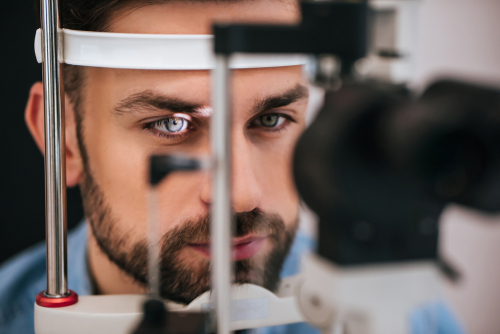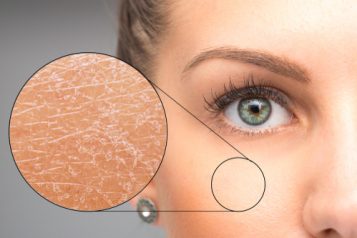Neda Shamie, MD is a renowned doctor in LASIK, cataract, and corneal surgeon. She previously was the Medical Director of the Doheny Eye Institute and is a Clinical Professor of Ophthalmology at the USC Keck School of Medicine. She specializes in advanced vision correction surgery including LASIK, PRK, ICLs, refractive lens exchange, and advanced lens laser cataract surgery. She also is an expert in complex corneal transplant surgeries including DMEK, DSEK, DALK, and PKP as well as the breakthrough, non-invasive keratoconus treatment, Collagen Cross-Linking. Dr. Shamie has trained and instructed over 500 surgeons and has personally performed over 6,500 vision correction surgeries. She is a partner and surgeon at the Maloney-Shamie Vision Institute in Los Angeles.
Haute Beauty interviews Dr. Neda Shamie to divulge in her thoughts and expertise on her experience on eye surgeries, and new advancements.
 Photo Credit: Shutterstock
Photo Credit: Shutterstock
HB: What is the Visian Implantable Contact Lens, and what can it offer patients with poor vision?
The Visian Implantable Contact Lens (ICL) is a surgical option available to patients with near nearsightedness (myopia) and astigmatism who seek independence from glasses and contact lenses. The lens is made from a soft plastic and natural collagen-based material called Collamer. It is similar to lenses that are placed in the eye (intraocular lenses) to correct vision after cataract surgery.
HB: How does the Visian ICL work?
The surgery to implant the lens is brief and painless. After completely numbing the eye, your doctor makes a tiny incision about 3mm long, just large enough to insert the ICL, a small, foldable, injectable lens. The ICL is placed behind the colored part of the eye (iris) and in front of the natural lens (crystalline lens) and focuses the vision. Your eye heals rapidly. Once the lens has been placed, you won’t be able to see it or feel it; only your eye doctor will be able to see it during the eye examination.
HB: Who is a good candidate for the Visian ICL?
The ICL is an option available to anyone with moderate or severe near nearsightedness and especially those who are not a candidate for LASIK due to the high level of nearsightedness, a cornea that is too thin for LASIK, or concerns for dry eyes.
 Photo Credit: Shutterstock
Photo Credit: Shutterstock
HB: How do you work with patients to achieve their desired outcome?
On initial consultation when visiting the doctor, we perform numerous diagnostic tests which include imaging using advanced technology to determine the exact correction needed and all the clinical parameters to consider. This thorough evaluation together with the patient’s visual demands and needs help us determine the most ideal options for the patient.
HB: Is the Visian ICL permanent?
The result is excellent quality of vision – improved to 20/20 or better. Because implantation of the ICL does not require any structural alteration of the eye, we find that the results are predictable and very stable. The implantable contact lens is extremely well tolerated by the eye. As a substance, it is inert and non-invasive. The body thinks it is part of its normal tissue. You can’t feel it in your eye. You can’t see it. Nobody around you can see it. The only one who could is an eye doctor who can look with special instruments and see it. So it is a very healthy option for people looking to correct their vision. Implantable lenses won’t stop your eyes from changing, however, and you can expect to experience the normal vision changes that come with age, such as a need for reading glasses after the age of 45 or so. Although the lens is intended to be permanent, it can be removed easily if your vision changes, or if it otherwise needs to be removed or replaced.
HB: What is recovery like?
Patients will experience significant improvement in vision the same day as the ICL procedure and are typically able to drive and return to work the following day. Though healing times can vary in length many patients achieve optimal results within a week or two.
For more information, visit Dr. Brian A. Levine's social media:

























